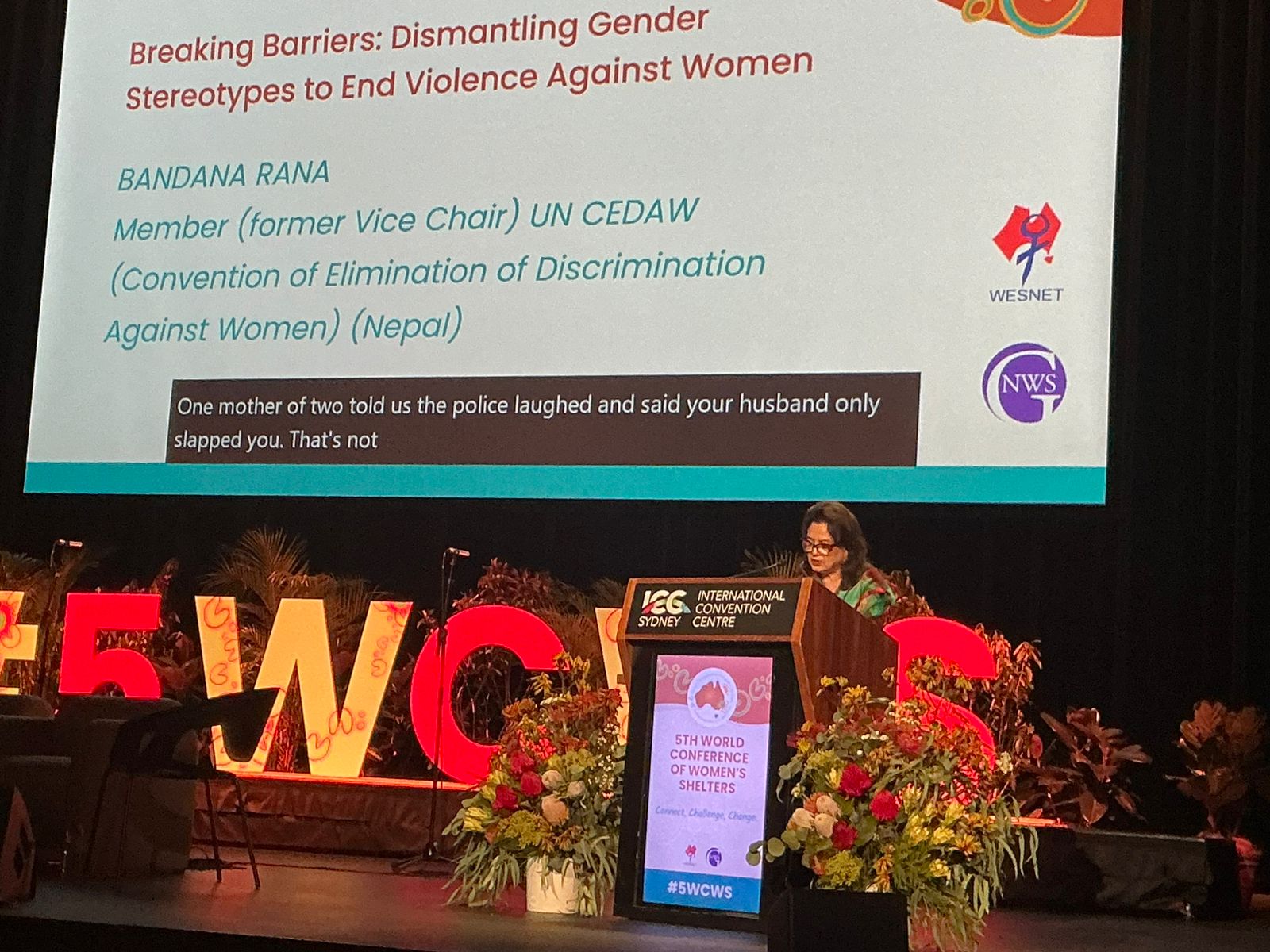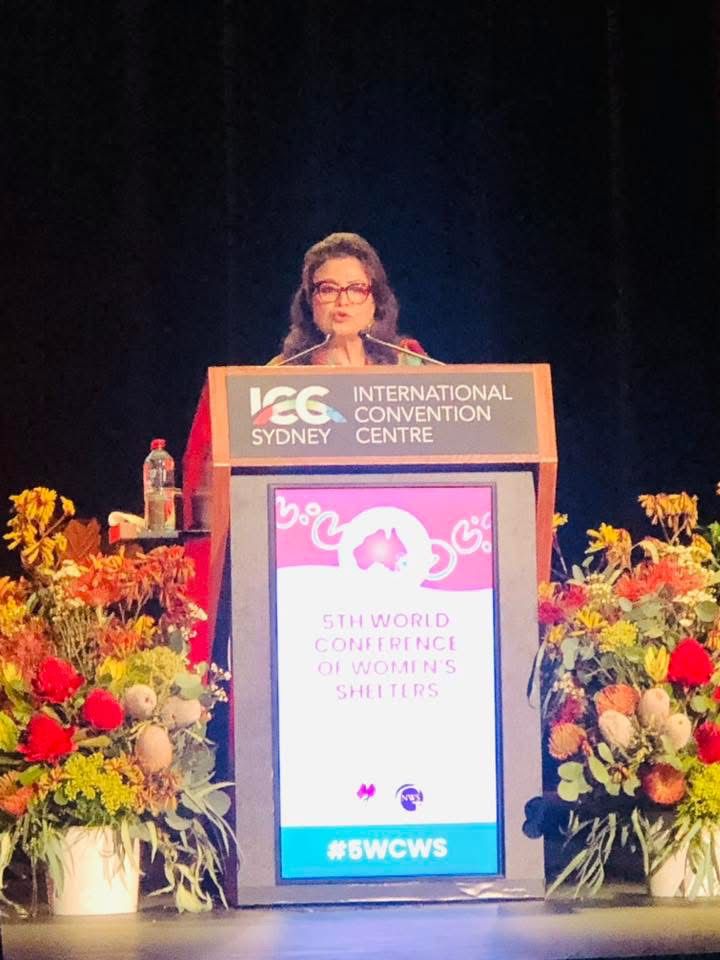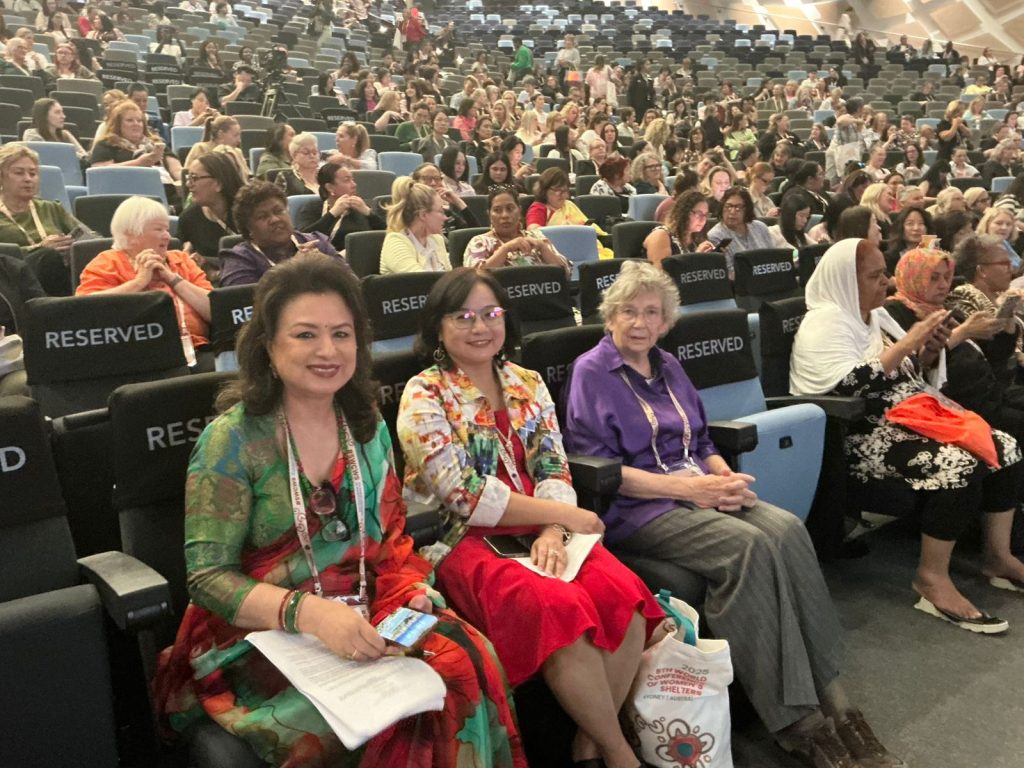
Kathmandu: Nepali women’s rights activist and global advocate Bandana Rana delivered a powerful keynote address at the 5th World Conference of Women’s Shelters in Sydney, urging governments, civil society, and the shelter movement to dismantle entrenched gender stereotypes that perpetuate violence against women.
Speaking on the theme “Breaking Barriers: Dismantling Gender Stereotypes to End Violence Against Women: CEDAW’s Role in Addressing Structural Barriers to Equality and Protection,” Rana reflected on her three-decade journey in the shelter movement, beginning with the founding of Saathi, one of Nepal’s first women’s shelters, in 1995.

“Survivors are not only escaping violence, they are also escaping the labels society forces on them—bad wife, disobedient daughter, failed mother,” she said, recalling early cases where women seeking refuge were blamed, shamed, or branded as “home breakers.”
Rana stressed that stereotypes such as “real men don’t cry,” “good women don’t speak out,” and “what was she wearing?” are not cultural truths but “constructed barriers” that normalize abuse, silence survivors, and obstruct justice. She argued that shelters must be recognized not as temporary solutions but as “acts of resistance and sites of feminist transformation.”
Citing Nepal’s 2009 Domestic Violence (Crime and Punishment) Act as an example, Rana highlighted how survivors’ voices collected within shelters became the backbone of advocacy for legal reform. “Shelters are not just service providers. We are political actors. We turn pain into policy, lived experience into legal reform,” she asserted.
A central focus of her address was the role of international mechanisms like CEDAW (the UN Convention on the Elimination of All Forms of Discrimination against Women) in holding states accountable. She emphasized the importance of the forthcoming CEDAW General Recommendation No. 41 on gender stereotypes, which will guide governments on dismantling structural barriers through law, policy, education, and culture.

“CEDAW transforms our local struggles into international obligations. It gives us language, legitimacy, and leverage,” Rana told the audience of more than 1,200 delegates from over 60 countries.
In a call to action, she urged the global shelter movement to amplify survivors’ stories, press governments to fund and support shelters as obligations of justice rather than charity, and engage boldly with CEDAW to demand accountability.
“Stereotypes are not just barriers. They are battlegrounds,” Rana concluded. “And every time we challenge them—in a courtroom, in a village, in a shelter, or in a treaty—we reclaim ground for justice and change.”
The conference, the largest global gathering of shelter leaders, activists, and policymakers, continues this week with discussions on advancing protection, justice, and equality for women and girls worldwide.